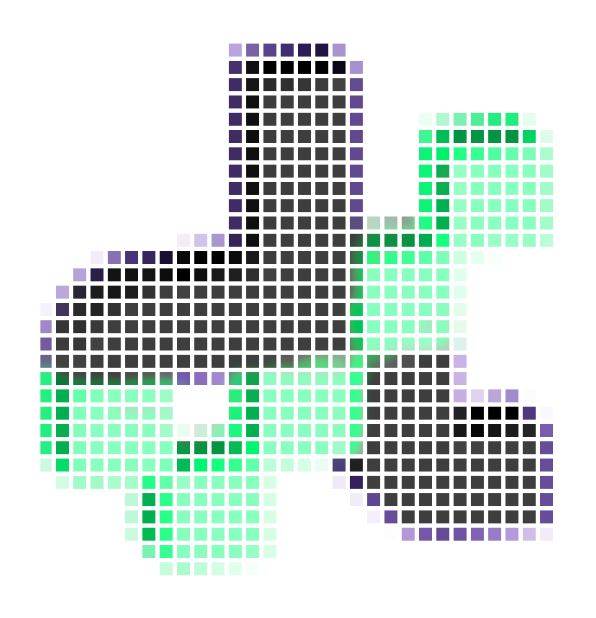DFMeshToCloud component#
Inputs:
|
Meshes to sample into a point cloud. |
|
The number of points of the created cloud. |
Outputs:
o_rh_cloud |
The output sampled cloud. |
Code:
#! python3
import System
import Rhino
from ghpythonlib.componentbase import executingcomponent as component
import diffCheck
import diffCheck.df_cvt_bindings
class DFMeshToCloud(component):
def RunScript(self,
i_meshes: System.Collections.Generic.List[Rhino.Geometry.Mesh],
i_points: int) -> Rhino.Geometry.PointCloud:
if i_meshes is None:
return None
if i_points is None:
i_points = 1000
rh_mesh = i_meshes[0]
for i in range(1, len(i_meshes)):
if i_meshes[i] is None:
return None
rh_mesh.Append(i_meshes[i])
rh_mesh.Faces.ConvertQuadsToTriangles()
df_mesh = diffCheck.df_cvt_bindings.cvt_rhmesh_2_dfmesh(rh_mesh)
df_cloud = df_mesh.sample_points_uniformly(i_points)
rgpoints = [Rhino.Geometry.Point3d(p[0], p[1], p[2]) for p in df_cloud.points]
# convert the df_cloud to a rhino cloud
rh_cloud = Rhino.Geometry.PointCloud(rgpoints)
return [rh_cloud]
